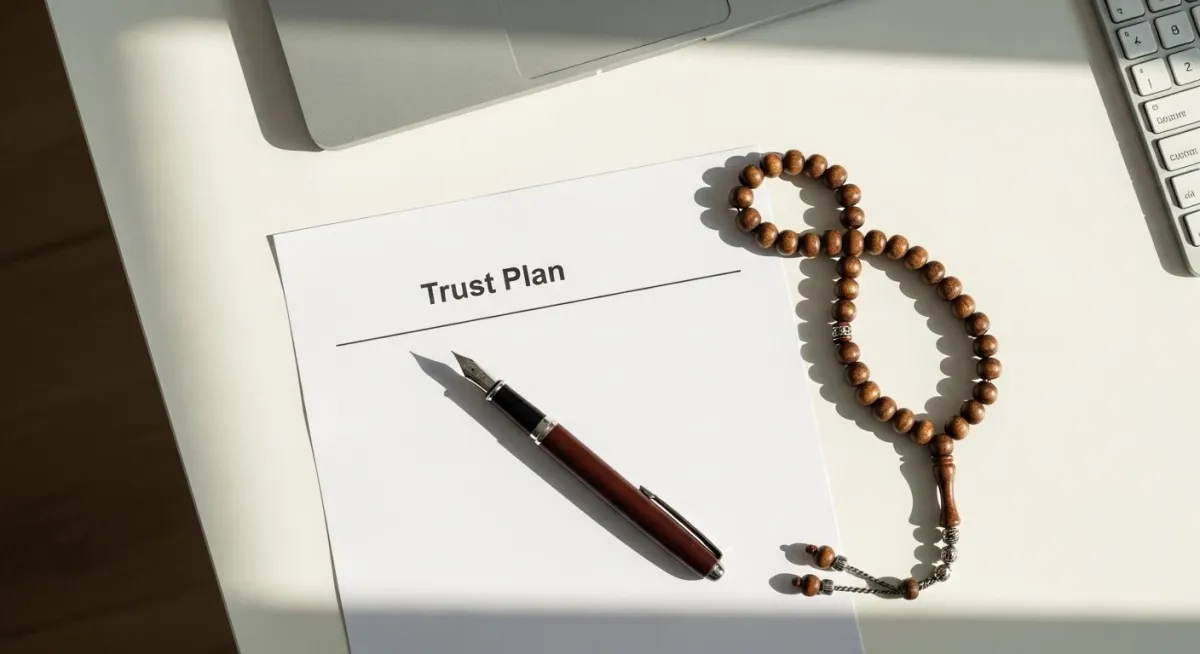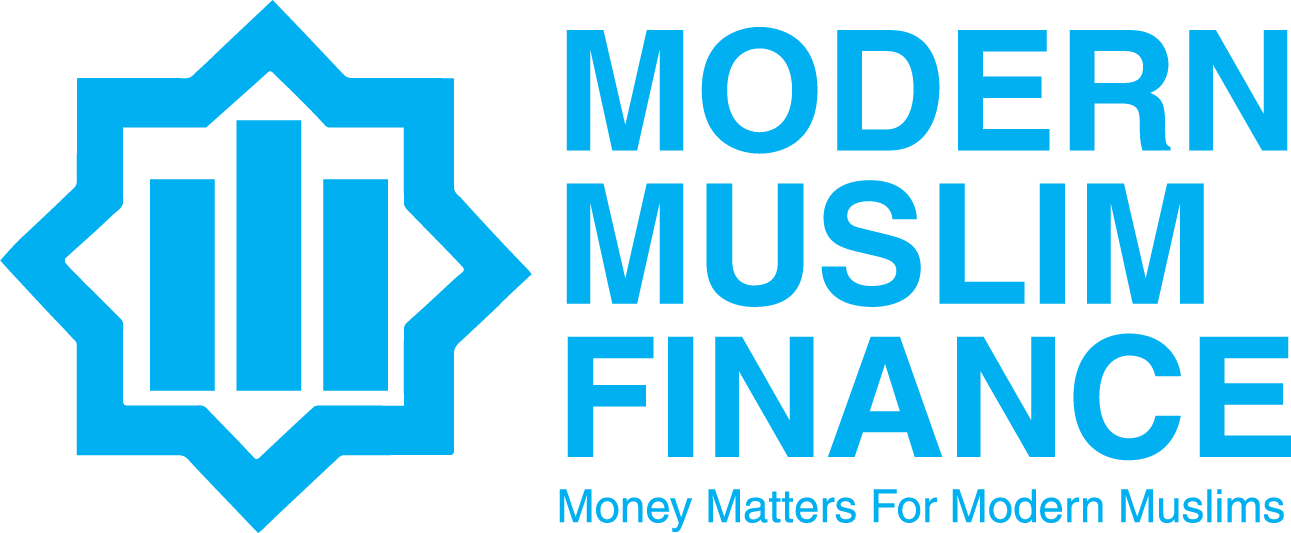Blog

Islamic Trusts in Singapore: How Trusts Strengthen Your Wasiat and Faraid Plan
Assalamu’alaikum wr wb,
When we talk about planning for our loved ones after we’re gone, the discussion often revolves around Wasiat (Islamic Will) and Faraid (Islamic Inheritance Law). These are fundamental pillars, no doubt. But what if you want to provide for your beneficiaries in a more structured way, especially if they are young, inexperienced with managing wealth, or have special needs? This is where the concept of a Trust can become incredibly valuable in Islamic estate planning.
At Modern Muslim Finance, our goal is to help you "Spend Guilt-Free, Live Worry Free and Retire Early" by understanding and utilizing all the Shariah-compliant tools available. A trust, when structured correctly, can be one such powerful tool.
What Exactly is a Trust in Islamic Estate Planning?
Think of a Trust as a legal arrangement where you (the Settlor) entrust your assets to a reliable person or entity (the Trustee) to manage for the benefit of your chosen individuals (the Beneficiaries). The Trustee is bound by the terms you set out in a document called the Trust Deed.
From an Islamic perspective, the key is to ensure that the terms of the trust, the assets placed within it, and its purpose are all Halal and do not contradict Shariah principles. For instance, a trust can be used to manage assets that will eventually be distributed according to Faraid, or to provide ongoing support to dependents in a manner that aligns with Islamic values.
Understanding Different Types of Trusts
While there are various types of trusts, let's explore three common ones that often come up in estate planning discussions:
Testamentary Trust:
This trust is created within your Wasiat and only comes into effect after your passing.
Your assets will first go through the probate process (the legal process of validating your Wasiat and settling your estate) before the trust is funded and becomes active.
It’s often used to manage inheritance for minor children or beneficiaries who might not be ready to handle a lump sum inheritance.
Living Trust (Inter Vivos Trust):
This trust is created during your lifetime (inter vivos means "between the living").
You transfer ownership of your assets into the trust while you're still alive.
Revocable Living Trust: You can change or cancel it at any time. This is a popular option as it offers flexibility. Assets in a revocable trust may still be considered part of your estate for Faraid calculation depending on the specifics and jurisdiction.
Irrevocable Living Trust: Once created, it generally cannot be altered or cancelled. This offers greater protection from creditors and can remove assets from your estate for probate purposes, but it means giving up control.
A key benefit of a living trust is that assets held within it typically avoid probate, allowing for quicker and more private distribution to your beneficiaries.
Standby Trust:
This is a type of revocable living trust that is "on standby."
It's created during your lifetime, but it remains largely unfunded or minimally funded initially.
The main purpose is for it to receive assets from your estate through a "pour-over" Wasiat after your passing, or for it to be funded and activated upon a specific trigger event, such as your incapacity (e.g., due to illness or disability).
This can be useful for managing your affairs if you become unable to do so yourself, and then it can continue to manage and distribute assets after your death.
Why Consider a Trust in Your Islamic Estate Plan?
Protecting Vulnerable Beneficiaries: Ensure young children, individuals with special needs, or those prone to mismanagement are cared for financially over the long term.
Staggered Distributions: Instead of a lump sum, you can arrange for beneficiaries to receive funds at certain ages or milestones (e.g., upon university graduation).
Asset Management: Appoint a trustee skilled in managing specific assets (like property or investments) for the benefit of your heirs.
Alignment with Wasiat and Faraid: Trusts can be structured to work alongside your Wasiat and the principles of Faraid, ensuring your specific wishes for asset distribution and care are met in a Shariah-compliant manner. For example, assets can be held in trust and the income used for dependents, while the capital is eventually distributed according to Faraid.
Charitable Giving (Waqf): An irrevocable trust can sometimes be used to create a form of ongoing charity (Waqf), though specific rules apply.
Key Considerations for Muslims in Singapore:
Shariah Compliance: This is paramount. The trust deed must be carefully drafted to ensure its terms and objectives align with Islamic principles. It’s crucial to avoid any conditions that are Haram.
Trustee Selection: Your trustee should be someone trustworthy, capable, and ideally, knowledgeable about Islamic principles or willing to act upon guidance.
Interaction with CPF & Insurance: In Singapore, how CPF nominations and insurance policy payouts interact with trusts and Islamic inheritance laws needs careful consideration. My module on "Contemporary Issues with Islamic Inheritance" on IslamicWealth.sg delves into such practical challenges.
Professional Advice: Structuring a trust, especially an Islamic one, is complex. It’s not a DIY task. Seeking advice from professionals experienced in both Singapore law and Islamic estate planning is essential.
As I always emphasize, financial planning is about achieving peace of mind. Understanding how tools like trusts can complement your Wasiat and Faraid planning helps you build a comprehensive legacy that cares for your loved ones according to your values.
My book, "Modern Muslim Finance's Guide To Islamic Inheritance," also touches upon the essentials of planning to ensure your family harmony and adherence to faith principles are maintained.
If you're looking to explore how trusts might fit into your Islamic estate plan, or have questions about Halal investing, Zakat, or other aspects of personal finance, I offer a free 30-minute initial consultation. You can book this via my website, www.modernmuslim.finance. Let's work together to simplify these concepts and secure your financial future, InshaAllah.
Important: The information and opinions in this article are for general information purposes only. They should not be relied on as professional financial advice. Readers should seek independent financial advice customised to their specific financial objectives, situations & needs.
This publication has not been reviewed by the Monetary Authority of Singapore.
Address:
114 Lavender Street, #07-83 CT Hub 2,
Singapore 338729
Email:
[email protected]
WhatsApp:
+65 8952 8511
Website:
modernmuslim.finance








